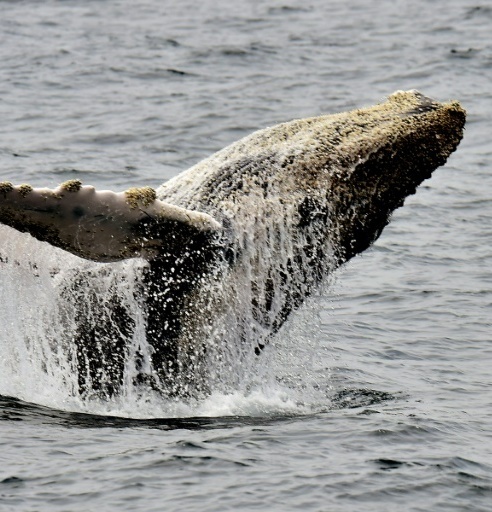Whales under threat as climate change destroys their food supply
Global warming is killing the food humpback whales need to survive, forcing them to make ever longer and more arduous migrations. Scores of whales, emaciated from a lack of krill, are surfacing along the coast, ecologists in South America say. “You can see their bones. They’re sick. They have parasites. We never used to see that,” said marine biologist Cristina Castro as she scanned the horizon for more humpback whales, the species she has studied for the past 18 years.
They are changing their migration cycles. They used to arrive here in July. Now we see them in May.
Marine biologist Cristina Castro
These whales swim thousands of kilometers (miles) each year from Antarctica to the waters around the equator to have their young, which measure three to 4.5 meters (10 to 15 feet) at birth and can weigh up to one tonne. But as ocean temperatures rise, whales are migrating earlier and traveling farther. Warmer waters are killing off the supply of krill, the small crustaceans that are whales’ main food source in their Arctic feeding grounds. The whales eat several tonnes a day to fatten up for their journeys. Rising temperatures also trick the whales’ biological clocks into thinking it is time to migrate.

Science whales